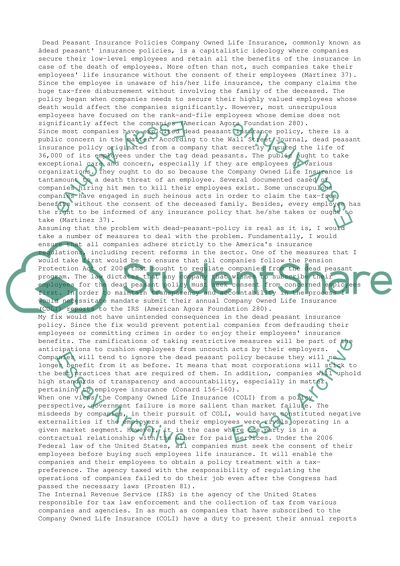Dead peasant insurance policy Essay Example | Topics and Well Written Essays - 750 words. https://studentshare.org/business/1859245-dead-peasant-insurance-policy
Dead Peasant Insurance Policy Essay Example | Topics and Well Written Essays - 750 Words. https://studentshare.org/business/1859245-dead-peasant-insurance-policy.


